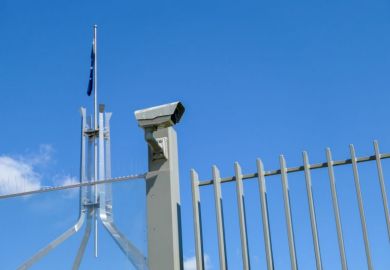A bill under consideration by Pakistan’s National Assembly would give its Higher Education Commission (HEC) – a body meant to uphold education standards – the power to “police” universities, university leaders there have warned.
The bill, which was recently submitted by three members of the National Assembly, would allow the HEC to “give directions to government functionaries, district administration and police to aid the commission wherever [it] deems necessary”. It would also enable the HEC to convene search committees for vice-chancellors at the written request of federal or provincial governments and give HEC members indemnity from any prosecution, including lawsuits.
The Federation of All Pakistan Universities Academic Staff Association, a faculty body, warned that the move was “highly concerning and unacceptable”.
“It will not only undermine the autonomy of the universities but also adversely affect the quality of higher education in Pakistan,” it said.
Asghar Zaidi, vice-chancellor of the Government College University of Lahore, one of the country’s oldest educational institutions and among its most prestigious, was among those to publicly denounce the bill. In an open letter on 18 April addressed to the speaker of Pakistan’s National Assembly, he expressed “deep concern” on behalf of his faculty.
“We must object to any measures that would undermine the authority of universities and reduce the role of the HEC to that of a policing body,” he wrote.
Professor Zaidi said that the proposed amendments would “further damage the higher education sector, which is already facing numerous challenges” – an allusion to the funding crisis faced by Pakistani universities, several of which have closed recently because they are unable to pay salaries.
He worried especially about clauses in the bill giving the HEC the right to appoint vice-chancellors.
“This is a blatant encroachment into uncharted territory and could have disastrous consequences for the institutions in question,” he wrote.
In order to come into law, the bill would need to be recommended by a National Assembly subcommittee that is currently reviewing it, before being passed by a simple majority in the National Assembly and then in the Senate.
Register to continue
Why register?
- Registration is free and only takes a moment
- Once registered, you can read 3 articles a month
- Sign up for our newsletter
Subscribe
Or subscribe for unlimited access to:
- Unlimited access to news, views, insights & reviews
- Digital editions
- Digital access to THE’s university and college rankings analysis
Already registered or a current subscriber?








